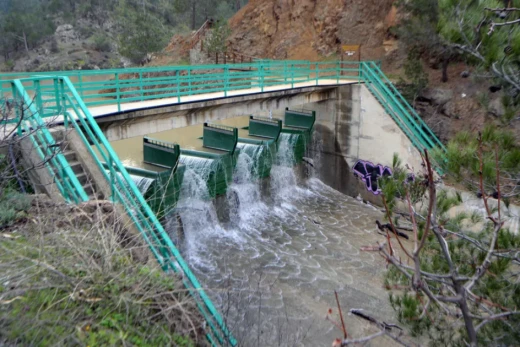Cyprus dams in critical condition: nine years of warnings went unheeded

Safety and water management issues in Cyprus are intensifying despite years of expert warnings. According to a new report by the State Audit Office published on Monday, many systemic deficiencies identified as far back as 2016 remain unresolved.
The situation is compounded by climate change, increasing droughts, and growing water demand. However, government programs are progressing slowly. Of the 60 projects planned under the 15-year Water Development Plan (2016–2030), only 14 have been completed, with total expenditures of around €767 million. Moreover, there is no transparent control over the use of funds.
Particular concern is raised by the condition of the dams. Cyprus has 104 large dams, 56 of which are registered with the International Commission on Large Dams (ICOLD). Many have exceeded their service life and are operated without safety certificates, operating instructions, or systematic maintenance. No private dam has undergone independent inspection to date, and large facilities have not received final safety certificates.
There is also a lack of flood zone maps for dams located near populated areas. A striking example is the leak at the Mavrokolimbos dam in January 2025, caused by pipeline failure and revealing difficulties in carrying out repair work.
Negative consequences are also associated with desalination plants, which play a crucial role in supplying the island with water. The discharge of saline brine into the sea is already affecting marine flora in the Larnaca and Dhekelia areas, and water from desalination plants has corrosive properties that damage household systems.
Groundwater conditions are also worrying: about 64% of aquifers are chemically polluted, mainly due to nitrates and salinity. Water losses in networks exceed 200 million cubic meters per year, and in some municipalities, leakage rates reach 29%.
Drinking water quality control remains insufficient: only a quarter of wells have designated protection zones, and many water authorities do not conduct systematic monitoring. Flood management and rainwater collection programs are delayed, even though the need for such measures was highlighted as early as 2009.
Auditors insist on creating a strategic planning system and clear coordination between agencies. Without political will and coordinated action, Cyprus risks serious water supply disruptions and threats to the population, infrastructure, and the natural environment.


